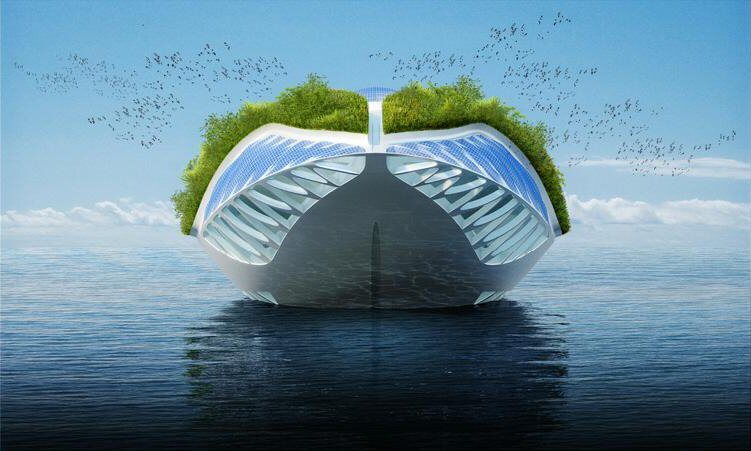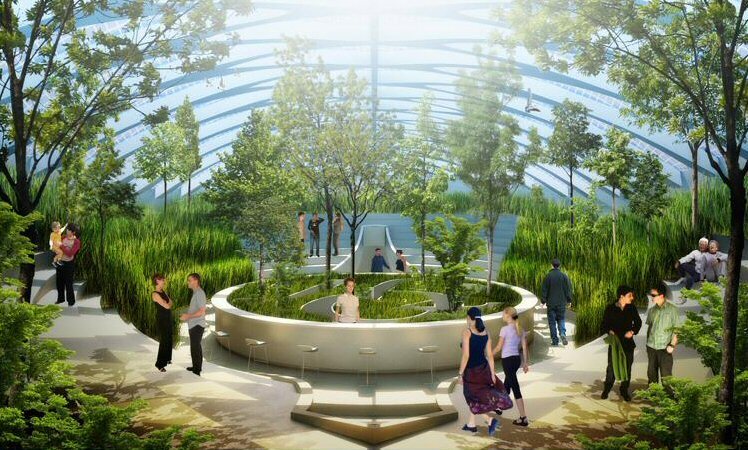Concerned about our rising population having serious water supply issues in the not too distant future, Lilypad floating city designer Vincent Callebaut has come up with a floating amphibious garden that can clean our rivers as it travels the waterways of Europe. His proposed "audacious, avant-garde" Physalia project will be a self-sufficient, nomadic research vessel which can also host aqua-focused exhibitions and conferences.
Our survival depends on getting a regular supply of safe, clean drinking water. According to figures provided by water.org though, about one in eight people currently lack access to safe water supplies. The United Nations says that nearly 4,000 children die every day due to dirty water or poor hygiene. Its World Water Development Report says that by 2050, at least a quarter of the world's population is likely to live in a country affected by chronic or recurring shortages of fresh water.
With these stark facts in mind, Callebaut has designed Physalia. He says that the vessel's structural design was inspired by the physalia physalis (commonly known as the jellyfish-like Portuguese man o' war), from the Greek for bladder or water bubble. As the craft wanders the waterways between the Danube and Volga, the Rhine and Guadalquivir, or the Euphrates and Tiger, a hydraulic network in its aluminum-covered, double hull will enable it to filter river water through to the planted roof for some natural purification.

The Belgian-born architect says that, like his Lilypad floating city concept, the self-cleaning vessel will have a titanium dioxide photocatalyst covering on the "silver-plated dress" which will help to further reduce water pollution. It's also envisaged that Physalia will be able to drag itself out of the water and operate on land too, although exactly how such a feat is achieved is not discussed.
He also plans for Physalia to be completely self-sufficient, producing more energy than it consumes (like the Plus Energy housing projects). To this end, photovoltaic panels in the roofing will harvest energy from the sun while underwater turbines will convert energy from the flowing river.
The interior of the vessel will be divided into four themed gardens representing the four elements. The main entrance will open into a water garden where exhibitions can be hosted, and an earth garden will also serve as a laboratory for international aquatic research initiatives. Peeking below the surface of the water will be the fire garden for dedicated exhibitions, and where visitors can look out into the river environment through underwater windows. Lastly, an amphitheater air garden will incorporate meeting and conference space.
"It is an ecosystem reacting to its environment, a fragment of living earth, inviting the fauna and the flora of the fluvial biodiversity to come and make its nest in the city," says Callebaut. It is aimed "at mixing people around the notion of water respect, sharing in movement and dynamic balance," he added. "After the Copenhagen conference, it is a project of transeuropean leadership and a positive innovation of ecologic resilience."

The architect doesn't go into any great detail on how all the various technologies will be integrated into Physalia, but concentrates more on how stunning it will look. In that regard, we have to agree. As to whether such a craft will ever leap from the drawing board and meander down Europe's rivers as intended, cleaning them as it goes, we'll have to wait and see ...
Via freshome




















